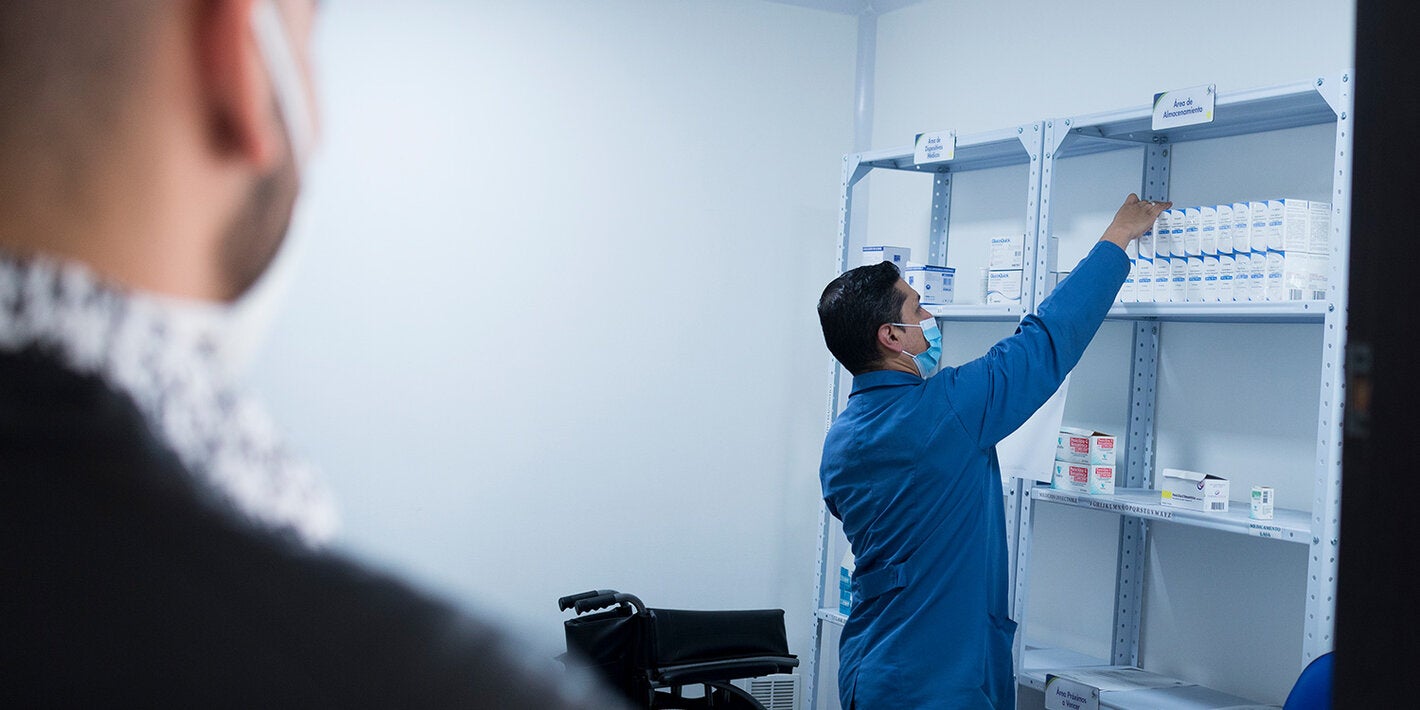
Washington DC, October 14, 2021 (PAHO) – More than 2,000 professionals from the Region of the Americas are beginning three virtual courses launched by the Pan American Health Organization (PAHO) at its Virtual Campus of Public Health. These are structured as self-learning courses, allowing participants to take them independently, at their own pace. The three courses are currently available in Spanish only.
Course on implementation and strengthening of programs for optimizing antimicrobial use (PROA)
This course addresses the problem of antimicrobial resistance, the importance of PROA, their organization and implementation, strategies to improve antimicrobial use, the essential role of education, interacting with and complementing infection control programs, and other key issues, in order for professionals to get involved in processes aimed at improving the quality of care. This second offers an additional module on optimizing antimicrobials use in the context of the COVID-19 pandemic
The 12-week course includes 6 modules on (1) Introduction to the problem of bacterial resistance; (2) General and organizational aspects of PROA; (3) Microbiological and pharmacological aspects; (4) Education and use of computer technology in PROA; (5) Other elements essential for the development of PROA; and (6) PROA and COVID-19: Approach to comprehensive disease management. This course is aimed at directors, managers, and health professionals (doctors, pharmacists, biochemists, microbiologists, and nurses) whose work is related to the use of antimicrobials in health institutions.
Participants have to review and interact with the educational material, pass the evaluations, and respond to the Virtual Campus quality survey in order to download the PAHO certificate of participation and approval.
Basic self-learning course on pharmacovigilance
The course began on September 28 and lasts 12 weeks, requiring an estimated 8 hours' work per week. The course seeks to present and promote an understanding of the basic concepts of surveillance of the post-authorization safety of medicines (including vaccines) in order to help strengthen human resources in the national pharmacovigilance systems.
The course has six modules on (1) Introduction to pharmacovigilance; (2) Safety of medicines; (3) Pharmacovigilance methods; (4) Pharmacovigilance in public health programs; (5) Complementary aspects of the implementation of a pharmacovigilance system; and (6) Pharmacovigilance and COVID-19.
This course I funded by the Government of Canada.
PHC-based pharmaceutical services, for managers
This initiative proposes a new model for PHC-based pharmaceutical services as an essential component of people-centered health services. The goal is to contribute to the global movement for universal access to health and universal health coverage. The course seeks to promote the development of pharmaceutical services based on primary health care by strengthening the capacities of directors and managers of pharmaceutical services at different levels in the countries of the Americas.
The course has four modules: (1) Social determinants of health and PHC; (2) Pharmaceutical services and their components; (3) Changes facing the pharmaceutical professional; and (4) Quality indicators of pharmaceutical services.
More than 2,000 participants have begun these courses in Argentina, Bolivia, Brazil, Belize, Chile, Colombia, Costa Rica, Cuba, Dominican Republic, Ecuador, El Salvador, Guatemala, Honduras, Mexico, Nicaragua, Panama, Paraguay, Peru, Uruguay, and Venezuela.
The three initiatives are part of the project "Working together to fight antimicrobial resistance" under the "One Health" approach, developed under the leadership of PAHO/WHO in close collaboration with the Food and Agriculture Organization of the United Nations (FAO), and the World Organization for Animal Health (OIE), with funding from the European Union (EU).



